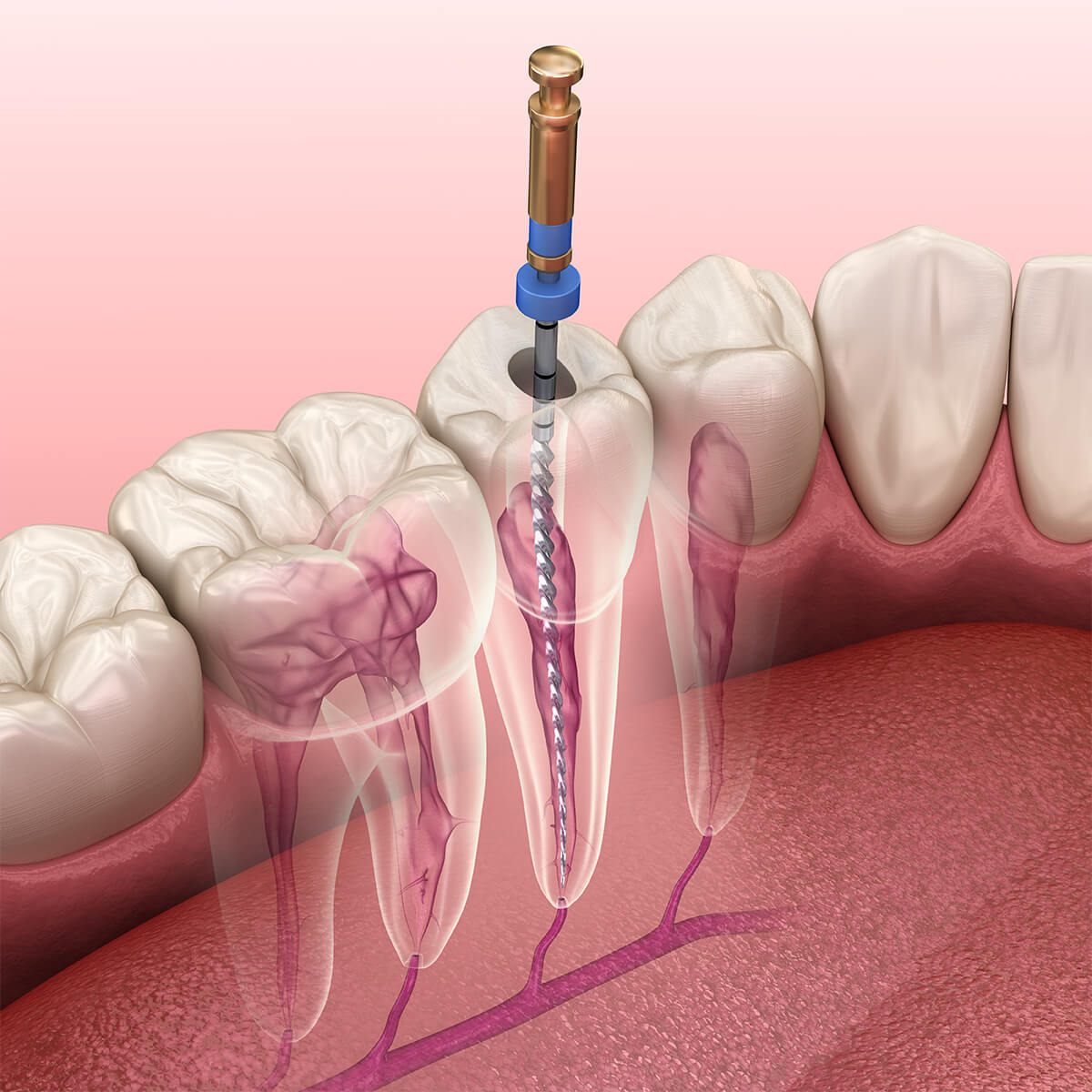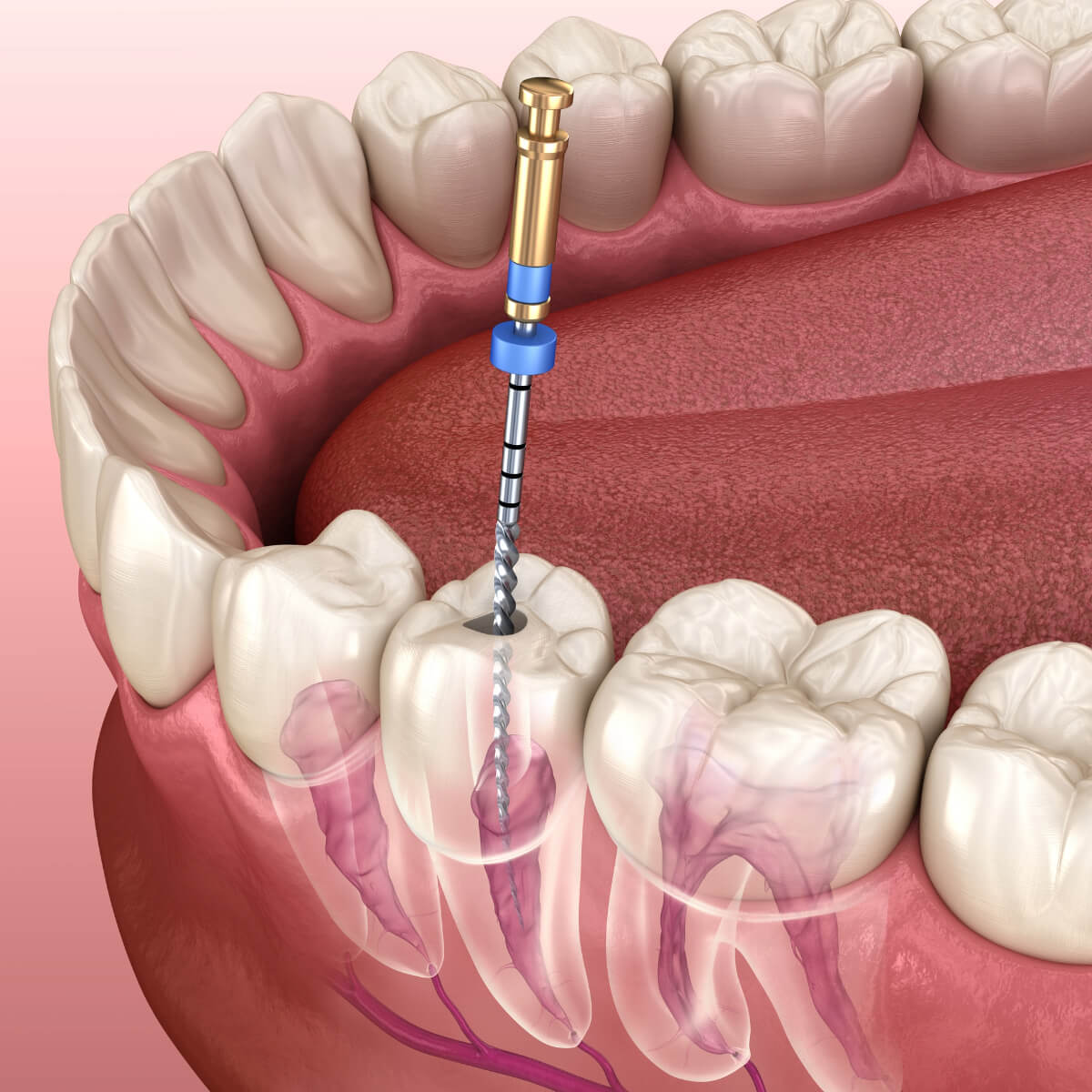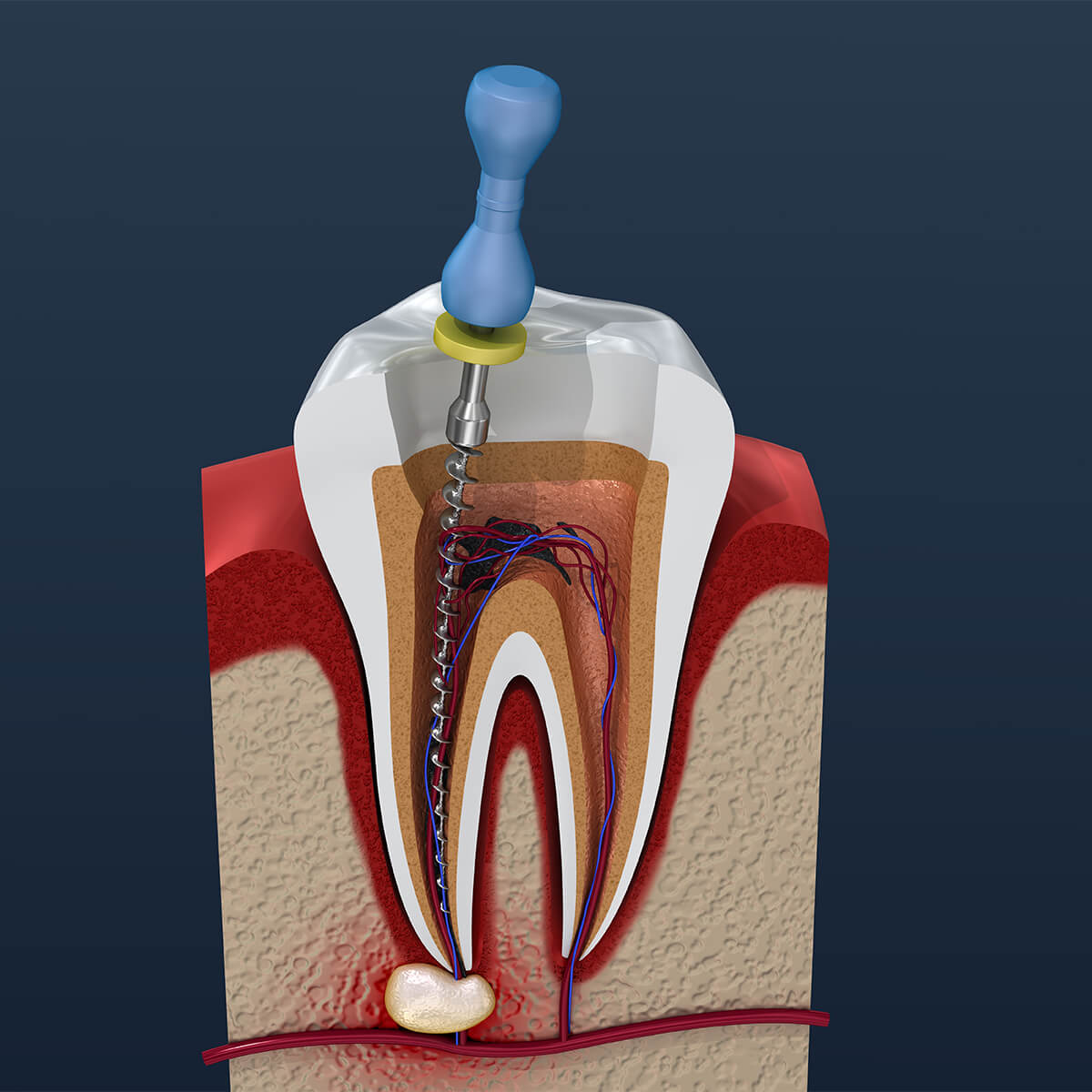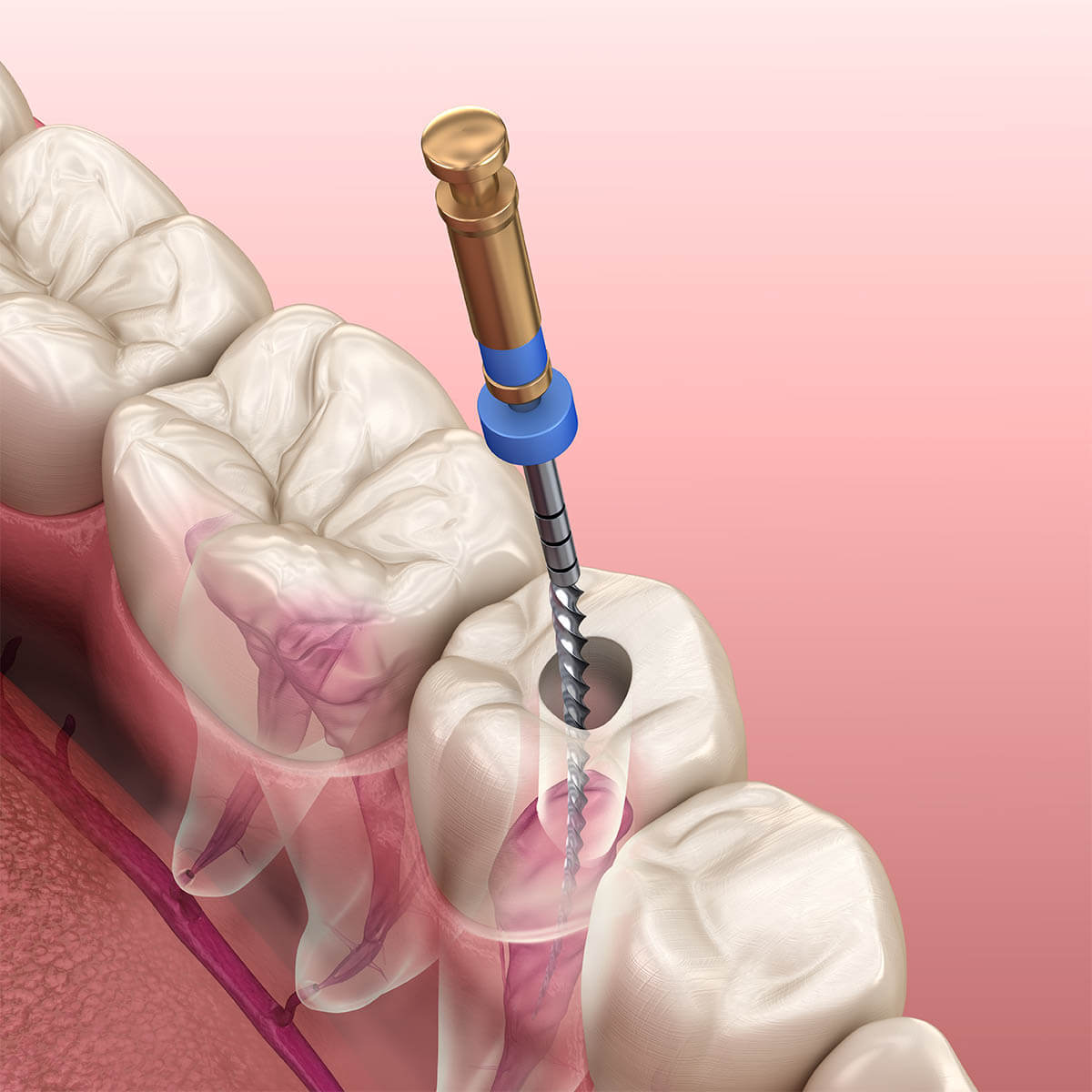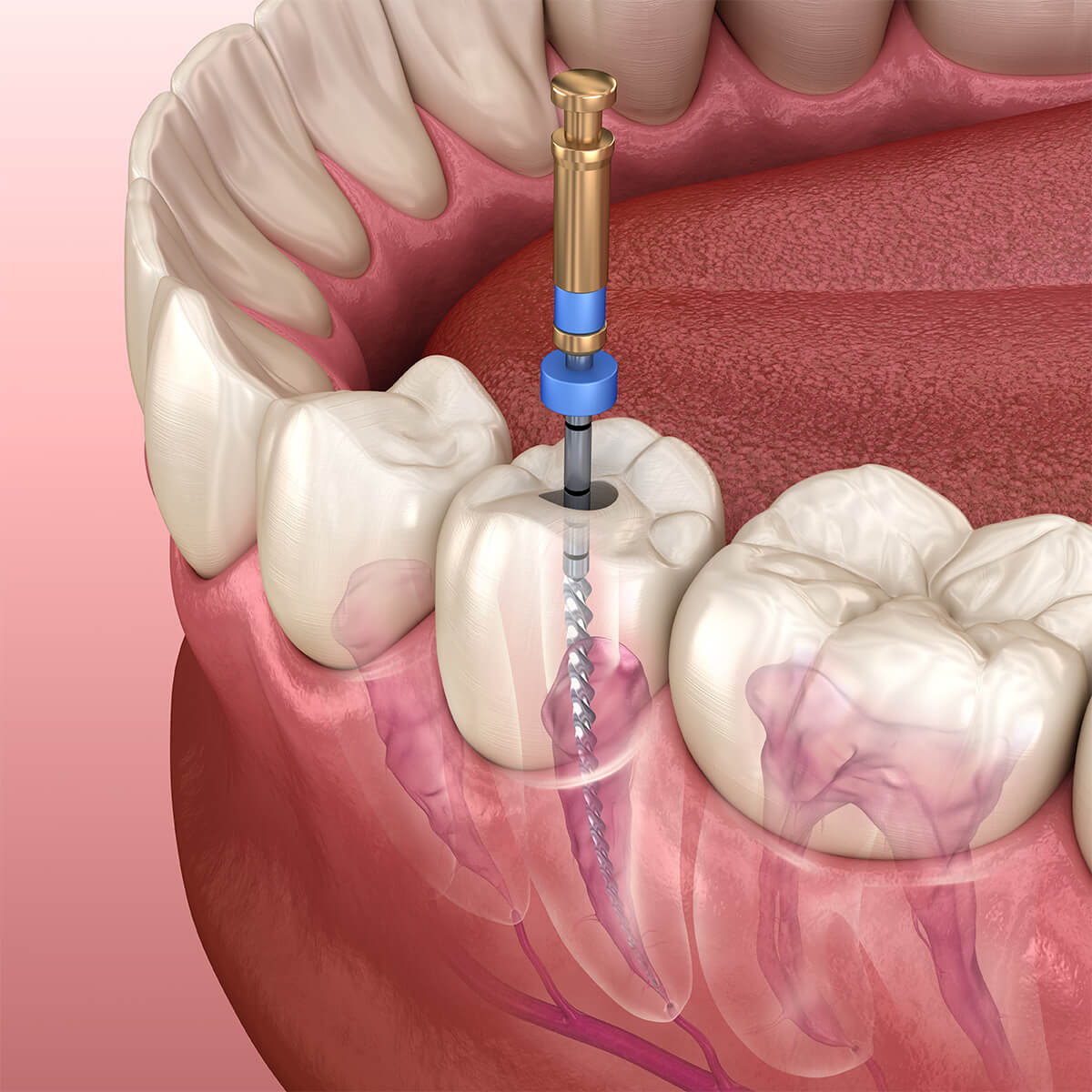Saving teeth with root canal treatment in San Antonio, Texas

What is an endodontist anyway?
An endodontist is a dental specialist who focuses on diagnosing and treating tooth pain and infections. In most cases, an endodontist performs root canal treatment to avoid the need to have a tooth extracted. A dentist must undergo two years of specialized training after dental school to become an endodontist. Acceptance into a residency is very competitive, and only about three percent of all dentists are trained in this specialty.
So then, what is a root canal?
The term “root canal” refers to the space inside the root that contains nerves, vessels, and other soft tissue that comprise the dental pulp. The pulp is involved in the growth and development of a tooth and is the reason teeth can feel hot and cold. In a healthy tooth, the dental pulp is protected by a thick layer of dentin and an ultra-hard exterior layer of enamel. When tooth damage or decay compromises those protective layers, the pulp is at risk of injury and infection. Root canal treatment is a sophisticated dental procedure that removes infection, relieves pain and restores the health of your tooth.
Why root canal treatment may be necessary
This procedure may be necessary for several reasons, most often when a tooth is damaged, cracked or severely decayed. All of these circumstances endanger the dental pulp and sometimes cause pulpal necrosis and infection. Without treatment, pain and infection are likely to occur and can cause tooth loss. Endodontists also redo root canal treatment that was inadequate the first time.
The goals of root canal treatment include removal of damaged tissue, elimination of infection and pain, with the ultimate goal of saving your tooth. Signs that you may need root canal treatment include:
- Excessive tooth sensitivity
- Pain when biting down or chewing
- Abscesses
- Tender, swollen, or dark gum tissue
- A broken, chipped, or badly decayed tooth
- Tooth pain that wakes you up at night
- Teeth that have been traumatized
- Teeth that discolor
Why choose Endodontic Consultants of San Antonio
Our doctors have decades of experience in general dental practice and deep knowledge of all aspects of oral health. However, unlike most general dentists, they went on to complete extensive additional education and become endodontic specialists. For more than 20 years, they have dedicated their careers specifically to endodontic treatment, perfecting their skills and acquiring the wisdom that comes only with considerable experience.
If you are a dental patient in need of a root canal treatment, or a dentist seeking an excellent endodontist for patient referrals, you can count on us. Just call Endodontic Consultants of San Antonio at (210) 405-0473.
FAQ's on root canal treatment with Dr. Richard Schwartz

“My name is Dr. Rick Schwartz. I’m an Endodontist from San Antonio, TX. Being an Endodontist means that I specialize in root canal treatment. There are a few questions I’m asked frequently.
Will root canal treatment hurt?
The short answer is no. You’ll be completely numb during the procedure, so it won’t be painful.
The only thing you will feel are the initial shots. We will numb that tissue before giving the shot. Inject slowly and gently, so the discomfort should be minimal even for the shots.
Does it hurt after the treatment is complete?
The tooth will feel better immediately for most patients but will have some residual tenderness for a day or two. You’ll want to chew on the other side during that time.
Does root canal “”””kill the tooth””””?
When we do root canal treatment, we remove the nerves and any infection from inside the tooth and then seal it up.
Afterwards, the tooth is like all the others, except it can no longer feel cold or hot because there are no nerves inside. It still has nerves and blood vessels on the outside, so it’s not dead.
What is the alternative to root canal treatment?
Generally speaking, the alternative to root canal treatment is extraction, and that’s the decision you’ll have to make.
Make an appointment with us today to learn more about root canal treatments.”


